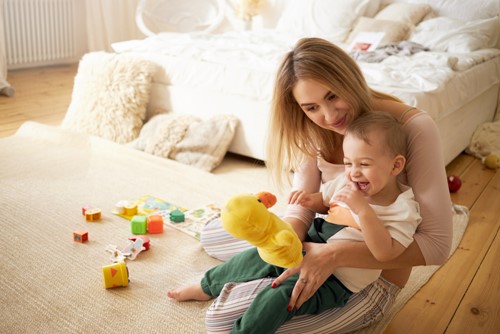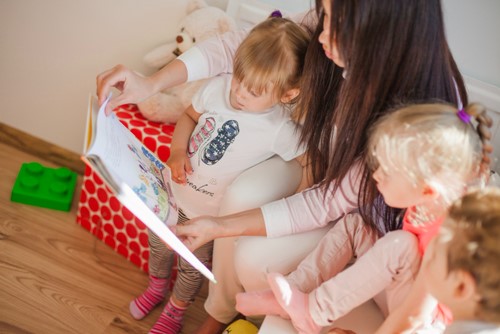Managing Toddlers with Professional Babysitters
The role of a babysitter in a child's life extends far beyond mere supervision. Nurturing, teaching, and providing an environment for healthy growth are invaluable components of the service they deliver. Specifically, with toddlers, handling their unique behavioral patterns often requires special skill sets demonstrated by professional babysitters.

Understanding Toddler Behaviour
Grasping toddlers' behaviour is critical to help them navigate their world to foster positive interactions. Their typical behavior often oscillates between being delightfully cooperative to suddenly challenging and defiant.
There are stages of cognitive development, and toddlers often struggle to communicate their feelings effectively, which can trigger frustrations. The way you react and interact with them greatly influences their emotional trajectory.
The Role of Professional Babysitters
Entering the scene here are professional babysitter agencies. They are not merely babysitters but competent individuals trained in understanding children's needs and responding accordingly.
The 'Professional' in MyKiddy Sitter signifies their skilled approach towards the duties and responsibilities that come with baby care. It encapsulates administering tasks from feeding, and diaper changing to understanding toddler psychology for effective communication - all while fostering a safe environment.
Preparation for Professional Babysitters
Even before the arrival of a babysitter, some groundwork needs your attention. To start with, explicitly discuss the rules and expectations with the babysitter so they are well-informed about your parenting style.
Moving ahead, introduce the new caregiver to your toddler in a friendly setting to encourage a positive first impression. Most importantly, establish a consistent routine for clarity and predictability that both your toddler and babysitter can follow easily.
Effective Communication Strategies
Fostering positive interactions is fundamental with toddlers whose emotions play on extreme ends most days. Always encourage the babysitter to use language creatively to comprehend what they might convey in tantrums or through conflict. Simultaneously ensuring they reward good behaviour at regular intervals goes a long way in reinforcing positive conduct.
Nurturing Development and Growth
While caring for physical needs matters, the emotional intelligence of your toddler garners equal importance. Enable the babysitter to understand how to process emotions and provide an environment that helps in recognizing and dealing with them in healthier ways.
Instinctively fostering independence skills through minor tasks also aids significantly in growth. But nothing beats structured learning activities when it comes to engaging toddlers constructively.
Safety Measures and Protocols
Safety always comes first with toddlers who have a propensity to be beautifully curious about their surroundings. A professional babysitter should be acquainted with your home's various safety aspects, along with being aware of managing emergencies promptly.
Also, a babysitter equipped with the knowledge of basic first aid is an indispensable asset for any caregiver.

Ensuring Smooth Transitions
Consistency is a key aspect of success in any toddler's routine. Involving new nursery staff must not disrupt this rhythm but rather blend into it effortlessly. And it's essential to know how to handle instances of separation anxiety from the babysitter by coping strategies like reassurances and familiar stimuli at updated times.
Sustaining Quality Relationships
Quality relationships between your toddler and their babysitter facilitate a sense of trust and comfort. Regular open communication between you and your babysitter allows for adjustments in the care routine, ensuring a positive environment for both parties.
Emphasising Proper Nutrition
Proper nutrition is central to a child's growth and development, forming the building blocks for their physical and mental well-being. It is thus essential to thoroughly educate your babysitter regarding your child's dietary needs.
This should include highlighting any known allergies that may trigger an unwanted reaction, along with understanding their eating habits to maintain consistency in their routine. Make sure you detail your child’s preferred meals to ensure they enjoy what they eat while still receiving the necessary nutrition.
Encouraging Physical Activity
Physical activity is essential to keep toddlers active and healthy. Whether it's playing catch in the backyard, going for a walk, or even dancing to music indoors - the menu of physical activities for toddlers is diverse and fun.
Understanding the need and importance of these activities, professional babysitters ensure that they incorporate an adequate amount of them into the daily routine.
Facilitating Restful Sleep
Just as important as physical activity is restful sleep. Toddlers require substantial sleep for their all-round development. Offering a comforting bedtime routine helps toddlers wind down. This could include reading a story, low lighting, or soft lullaby music.
Different strategies can work differently with individual children. It's crucial that the babysitter understands your child's sleep cues and helps establish a consistent sleep schedule.
Summary
The importance of approaching toddler care professionally cannot be stressed enough, given the significant role it plays in their development stages. Balancing safety measures, effective communication strategies, learning activities, and aiding emotional intelligence are crucial aspects that separate standard caregiving from professional babysitting.
Always remember - Your toddler deserves nothing short of well-rounded professionals who can contribute positively to their formative years.